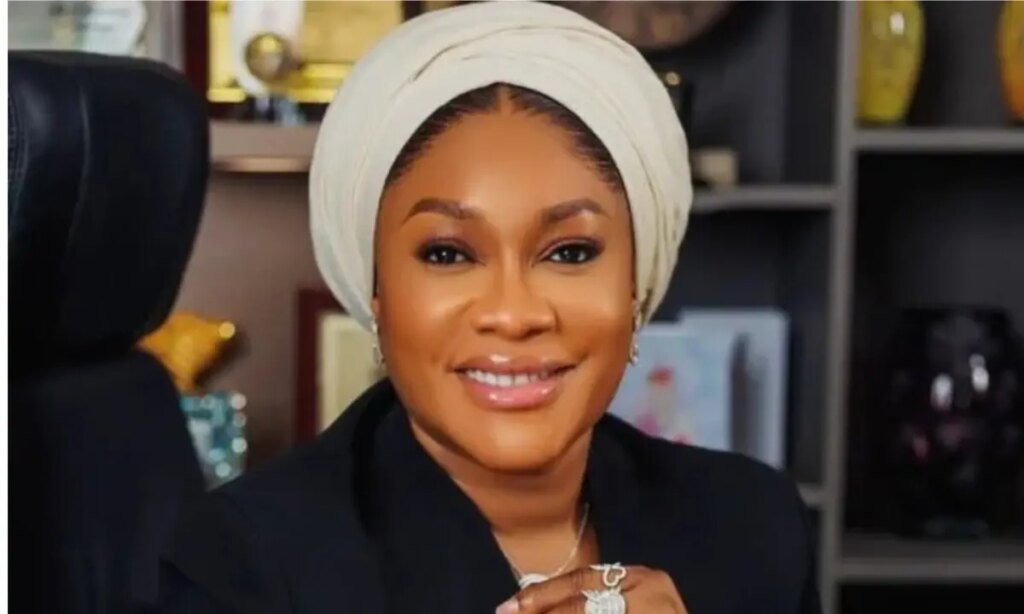The latest arrest of Aisha Achimugu, a high-profile Nigerian enterprise government and socialite, has ignited vigorous debates throughout Nigeria and the worldwide group about justice, the rule of legislation, and human rights protections. The circumstances surrounding her detention increase pressing questions on due course of, governmental accountability, and Nigeria’s dedication to truthful authorized procedures—points that resonate far past her private case.
Based on her authorized crew, led by Chikaosolu Ojukwu, Senior Advocate of Nigeria (SAN), Achimugu voluntarily introduced herself at Abuja’s Nnamdi Azikiwe Worldwide Airport following an official invitation by the Financial and Monetary Crimes Fee (EFCC). Her lawyer asserts that her go to was an act of fine religion, undertaken in compliance with a court docket order from the Federal Excessive Courtroom in Abuja, presided over by Justice I.E. Ekwo, which directed her to seem earlier than the EFCC and the court docket amid ongoing investigations into allegations of legal conspiracy and cash laundering.
Regardless of her compliance, Achimugu was reportedly arrested on the airport earlier than she might even proceed to the EFCC workplace. Her authorized crew describes this motion as a gross deviation from the guarantees made in court docket and a violation of her authorized rights. Notably, her lawyer said that she approached authorities transparently and in accordance with authorized procedures, making her arrest at such a delicate juncture troubling and emblematic of potential procedural irregularities.
On the coronary heart of this controversy lies the precept of presumption of innocence, a cornerstone of democratic justice programs worldwide. Each particular person accused of a criminal offense is entitled to be thought-about harmless till confirmed responsible past an affordable doubt in a court docket of legislation. This precept not solely protects people from wrongful detention but additionally maintains the integrity of the judicial course of.
In Achimugu’s case, her voluntary look and cooperation counsel a dedication to due course of. But, her subsequent arrest, particularly after her court-ordered look, seems to undermine this precept. It raises issues about whether or not correct authorized protocols are being noticed and whether or not justice is being served or politicized.
The Federal Excessive Courtroom’s directives for Achimugu’s look mirror an expectation of judicial oversight and due course of. Nonetheless, her arrest contradicts these mandates and raises questions in regards to the independence of Nigeria’s legislation enforcement companies. When arrests happen at odds with court docket orders, it ignites fears of extrajudicial actions and a diminishment of judicial authority.
For Nigeria to uphold the rule of legislation, legislation enforcement companies should function throughout the bounds of judicial oversight, respecting court docket orders and particular person rights. The integrity of the Nigerian judiciary will depend on its capability to function an neutral arbiter, immune from undue affect or harassment.
Aisha Achimugu has been described by her authorized defenders as a “prisoner of conscience,” asserting that her detention seems vitiated by the rule of legislation. The choice to detain her with out clear rationalization dangers casting her as a sufferer of political or institutional overreach—a state of affairs that ought to alarm advocates for human rights and due course of.
Worldwide requirements, together with these articulated by the United Nations, emphasize that people detained should be knowledgeable promptly of the explanations for his or her detention, have entry to authorized illustration, and be handled with dignity. Any deviation from these requirements diminishes Nigeria’s worldwide credibility and contravenes established human rights norms.
Past authorized proceedings, Achimugu’s stature as a formidable enterprise chief highlights her constructive contributions to Nigeria’s economic system. Because the Group Managing Director and CEO of Felak Idea Group, she presides over a conglomerate with pursuits spanning engineering, maritime, oil and fuel, and knowledge know-how sectors—industries important to Nigeria’s improvement.
Her entrepreneurial journey exemplifies resilience and imaginative and prescient, serving as an inspiration, significantly for Nigerian girls striving to interrupt glass ceilings in historically male-dominated industries. Any unjust arrest dangers undermining Nigeria’s status as a hub for gifted and impressive entrepreneurs.
This case underscores the broader problem Nigeria faces in sustaining a sturdy, clear, and impartial justice system. Excessive-profile instances like Achimugu’s usually turn into litmus assessments for Nigeria’s dedication to democratic ideas, rule of legislation, and safety of constitutional rights.
If Nigerian authorities fail to uphold equity and due course of, they threat fueling public mistrust, discouraging international funding, and tarnishing Nigeria’s worldwide picture. Conversely, a clear and simply authorized course of will reinforce Nigeria’s standing as a nation dedicated to justice, human rights, and the rule of legislation.
The worldwide group, human rights advocates, and Nigerian civil society should pay shut consideration to this case. It calls for sturdy oversight, transparency, and adherence to constitutional protections. Aisha Achimugu’s arrest and detention needs to be seen not merely by way of the lens of her particular person innocence or guilt, however as an indicator of Nigeria’s authorized well being.
Justice shouldn’t be a device for political or institutional vengeance however a course of rooted in equity and the rule of legislation. Achimugu’s case raises vital questions on Nigerian judicial independence and human rights protections—questions that demand solutions.
In the end, Nigeria’s progress as a nation hinges on its means to uphold these ideas persistently. For Aisha Achimugu, and others like her, the world is watching. What Nigeria demonstrates right now will form its status tomorrow: as a nation dedicated to justice, equality, and elementary rights.

